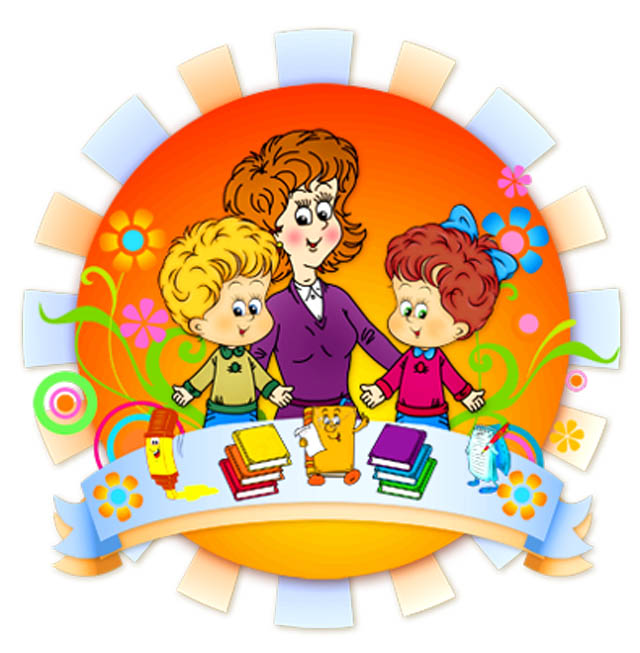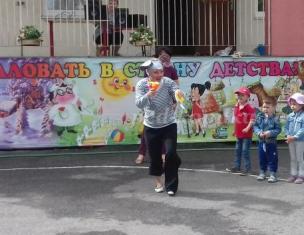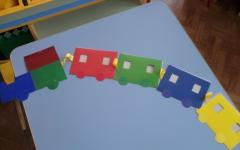Municipal budgetary educational institution
"Secondary school No. 12"
Municipal formation city of Noyabrsk
Reminders
for parents of first graders
Material prepared
primary school teacher
Tretyakova Tatyana Andreevna
City of Noyabrsk
2014
REMINDER FOR PARENTS .
Dear parents!
Organize, please, a corner of the student, maintain order in it.
Turn off the radio and TV before starting homework. Do not interfere with children with unnecessary remarks, loud conversations.
Do not sit with your child at home, but check them daily.
Learn to complete tasks quickly, clearly, without distraction.
Teach your child to thoroughly prepare for tomorrow:
- collect school supplies;
- prepare shoes, clothes.
Rationally organize your daily routine:
- to prepare lessons at the set time, in a ventilated room;
- relax in the fresh air;
- go to bed on time;
- watch TV (computer) for no more than 1 hour.
Treat children's affairs attentively, benevolently, but at the same time, be demanding of the results of his activities.
From the very beginning of the teaching, instill faith and optimism in the children:
“Failures are temporary. What doesn’t work today will work tomorrow.”

Questionnaire
"My child"
- When he was born then
- The most interesting thing in the first years of his life in it was
- The following can be said about health
- When the question arose about preparing for school, we ______________________________________________________________________________________________
- His attitude towards school was
- Difficulties associated with parenting
- I would like teachers to pay attention to __________________________________________________________________________________________
And general tips on how to overcome them:
Many parents, trying to teach a child to be independent, do not help him do his homework, but only check the already completed task. But not every child is able to independently do even a simple task. It will take several months for the child to understand that homework is his responsibility, which must be done. Therefore, at first, you should gently remind the baby that it is time to sit down for books and help him, even if with your presence.School supplies are an indispensable attribute of study. All kinds of pencil cases, notebooks, pens, erasers, folders - a first-grader perceives them as new toys. So don't skimp on these essential attributes. Let the child participate in the choice of school supplies, they maintain an interest in learning.
A first grader needs a solid daily routine.
After school and lunch, give your child one to two hours of free time. Let him rest, play, breathe fresh air. But don't put off your homework until late in the evening. After 17-18 hours, concentration and the ability to perceive new information are sharply reduced. The optimal time for completing the lessons is 16-17 hours - the child has already rested after school and is not yet tired of playing. Just don't force him to quickly drop toys and sit down for lessons, because the time has come. Wait for the moment when the child puts down one toy and does not yet take up another. If you interrupt a child who is enthusiastically playing, a protest will arise and the need to do homework will quickly acquire a negative connotation.
Always start with the most difficult while attention is on top. And what the child is familiar with from kindergarten (for example, drawing) he will be able to do even after the concentration curve starts to decline.
If something is not working out for a child, help him in the intermediate stages. Just don't do the whole homework for him. Smoothly lead to the right decision, but he must give the final answer himself.
In conclusion, be sure to praise the baby: “You see how well done you are. I only helped you a little, and you yourself solved this difficult example. Then the child will have a positive attitude "I can do everything myself."
Your child's success largely depends on you!

Your baby has become a schoolboy!
We, teachers, are glad to see him in our educational institution. We sincerely hope that your parental journey will be easy and you will not get tired on the way.
Success in the upbringing and education of a child can only be achieved in close cooperation between the family and the school.
Cooperation will bear fruit when relatives and friends, without whom the child cannot imagine his life, find the strength and courage to learn every day to be a real Mother and a real Father!
Let these laws of parental truth help you succeed as parents, try to follow them in the most difficult life situations, love your child and cherish his love for you!
Law 1
Cherish the love of your child. Remember, there is only one step from love to hate, do not take rash steps!
Act 2
Don't humiliate your child. Humiliating him himself, you form in him the skill and skill of humiliation, which he can use in relation to other people. It is possible that it will be you.
Act 3
Don't threaten your child. Adult threats lead to fear and hatred.
Law 4
Don't impose restrictions. Something that is strictly forbidden, I really want to try, do not forget about it.
Law 5
Do not guard your child where you can do without guardianship; let the little man become big on his own.
Law 6
Do not follow your child's lead, know how to observe the measure of your love and the measure of your parental responsibility.
Law 7
Develop your sense of humor. Teach your child to laugh at himself! It's better than other people laughing at him.
Law 8
Do not read endless notations to your child, he simply does not hear them!
Law 9
Always be consistent in your requirements. Know your "yes" and "no" well.
Law 10
Do not deprive your child of the right to be a child. Give him the opportunity to be a mischievous and fidget, a rebel and a naughty. The period of childhood is very fleeting, and there is so much to try before you become an adult. Give your child the opportunity to be him during childhood, otherwise the period of childhood will continue into his adult life. This can have serious consequences for both your child and you, the parents!

Remember that the greatest parental happiness is to see accomplished, smart and grateful children!
We wish you success!
memo

parents
first graders
Your child came to school to learn. The child has the right to make mistakes.
Do not skip the difficulties that a child may have at the initial stage of mastering learning skills.
Support the first grader in his desire to succeed. In each work, be sure to find something for which you can praise him.
With admission to school, a person more authoritative than you has appeared in the life of your child. This is a teacher. Respect the first grader's opinion of your teacher.
Teaching is hard and responsible work. The first grader should have enough time for playing activities.
Reminder for parents
What should a family do to make a child more successful, proactive, talented?
1. You need to try to make the child stay longer"why" . A student who does not ask questions is a cause for parental anxiety. "Curiosity makes scientists."2. The family must formcult of intellect - in creating a home library, in interesting conversations, disputes. You need to start doing everything with the child.
3. You need to put the child inthinking situation . The task of an adult is not so much to answer the child's question as to encourage him to think, offer, choose.
4. You need to teach the childanalyze my job. Do not point out a mistake in the work, but direct his attention to finding it.
5. Necessarydevelop attention and memory child.
6. Favorably affects himsuccess situation . It satisfies the child's need for self-respect and increased prestige.
7. Assessing the results of the child's activities,do not transfer them to the personality of the child himself. He as a person is always good and desirable for his parents.
8.


Reminders for parents of first graders

It is forbidden:
2. Feed the child before and after school with dry food, sandwiches, explaining this to yourself and others by the fact that the child likes such food.
3. Demand from the child only excellent and good results at school if he is not ready for them.
4. Immediately after school lessons, do homework.
5. Deprive children of outdoor play due to bad grades.
6. Force the child to sleep during the day after school and deprive him of this right.
7. Shouting at a child in general and during homework in particular
8. Force you to repeatedly rewrite in a notebook from a draft.
9. Do not take health breaks while doing homework.
10. Wait for dad and mom to start doing homework.
11. Sit at the TV and at the computer for more than 40-45 minutes. in a day.
12. Watch scary movies and play noisy games before bed.
13. Scolding a child at bedtime.
14. Do not show physical activity in your free time from lessons.
15. Talking to a child about his school problems is evil and instructive.
16. Do not forgive the mistakes and failures of the child.
Tips for parents:
- It is unacceptable to use physical measures of influence, intimidation, criticism of the child, especially in the presence of other people. It is advisable to get to know your classmates and chat with them after class. It is necessary to show interest in the school affairs of the child, in the school, in the class, in every day spent at school. It should be remembered that the first condition for success in school is the self-worth of the child for parents. Create a favorable climate in the family. Provide the child with independence in educational work and at the same time reasonably control his educational activities. Encourage the child, and not only for academic success. We must try to keep the child longer "why". A student who does not ask questions is a cause for parental anxiety. "Curiosity makes scientists." The family should form a cult of intelligence - in creating a home library, in interesting conversations, disputes. You need to start doing everything with the child. Often put yourself in the place of your child and remember yourself at his age.


- Support your child in his quest to become a schoolboy. Interest in school affairs, a serious attitude to the first successes and achievements will help the first grader to confirm the significance of his new position and activities. Discuss with your child the rules and norms that he met at school. Explain their necessity and expediency. The child may be wrong. Do not scold him, because he is only learning. Explain what is wrong and, if necessary, help correct it. Make a daily routine with the first grader, follow it. If there are any difficulties, do not run them, but solve them at the initial stage. If something worries you in the behavior of the child, his educational affairs, do not hesitate to seek advice from a teacher or school psychologist.
Parental giftedness
The American scientist Lewis studied the psychological climate in families where gifted children grew up. He noticed that with all the diversity of these families, there is much that unites them, and, above all, this is the style of parental interaction with the child. Based on the results of his research, he revealed a number of specific features of parental behavior that guarantees the successful development of intellectual and creative abilities.
The proposed list, which includes 33 judgments, will make it possible to understand and evaluate how the style of interaction between parents and a child corresponds to the practical findings of the most gifted parents who have achieved success in raising their children.
- I answer all questions and statements of the child. I take serious questions and statements of the child seriously. I set up a stand where a child can showcase their work. I do not scold a child for a mess in his room or on the table, if this is related to a creative activity and the work has not yet been completed. I gave the child a room (or part of the room) exclusively for his studies. I show the child that he is loved for who he is, and not for his achievements. I entrust the child with feasible cares. I help the child make his own plans and make decisions. I take my child on trips to interesting places. I help the child to improve the result of his work. I help the child communicate normally with children from different social and cultural backgrounds. I set a reasonable behavioral standard and make sure the child follows it. I never tell a child that he is better or worse than other children. I never punish a child with humiliation. I provide the child with books and materials for his favorite activities. I teach children to think for themselves. I read to my child regularly. I teach my children to read from an early age. I encourage the child to invent stories, fantasize. I am attentive to the individual needs of the child. I find time every day to be alone with my child. I encourage the participation of the child in the planning of family affairs and travel. I never tease a child for making mistakes. I praise the child for the learned poems, stories, songs. I teach children to communicate freely with adults of all ages. I encourage the child to find problems and solve them. I do not praise the child pointlessly and insincerely. I am honest in assessing my feelings for the child. There are no topics that I exclude for communication with a child. I give the child the opportunity to really make decisions. I develop in the child a positive perception of his abilities. I believe in the common sense of the child and trust him always. I encourage independence in the child.
Test for parents
 "Me and my baby"
"Me and my baby"
The role of parents in raising a child is irreplaceable. They are the main "designers, constructors and builders" of the child's personality. The test will complement your idea of yourself as a parent, help you draw certain conclusions about the problems of raising children.
Key to the test
Answer
"A"
is worth 3 points.
Answer
"B"
- 2 points.
Answer
"IN"
- 1 point.
30 - 39 points
If you scored from 30 to 39 points, then the child is the greatest value in your life. You strive not only to understand, but also to know him, treat him with respect, adhere to progressive principles of education and a constant line of behavior.
In other words, you are doing the right thing and can hope for good results.
16 - 30 points
Sum from 16 to 30 points: Caring for your child is of paramount importance to you. You have the abilities of an educator, but in practice you do not always apply them consistently and purposefully. Sometimes you are too strict, at other times you are too soft; in addition, you are prone to compromises that weaken the educational effect.You should seriously think about your approach to raising a child.
Less than 16 points
A score of less than 16 indicates that you have serious problems with raising a child. You either lack the knowledge of how to make a child a person, or the desire to achieve this, and perhaps both.We advise you to turn to the help of specialists - teachers and psychologists, to get acquainted with publications on family education.
Daily routine of a first grader
The daily routine of a schoolchild, especially a first grader, is very different from the daily routine of a preschooler.And parents should be aware that, first of all, they need to rebuild themselves. If a preschooler can not go to kindergarten, oversleep, come later, then this situation is unacceptable with the school. First of all, it should be understood that compliance with the regime for the child is very important, so you need to organize the correct sequence of various activities and free time.The mode really affects the mood of the child and his well-being, this is a fact. If you do not follow the correct daily routine, then the child gradually becomes lethargic, does not perceive information well, and also becomes susceptible to various kinds of diseases. If the regime is followed, the child is properly adjusted to rest, study, he becomes more physically active, and schooling is more successful. When a child lives according to the regimen, conditioned reflexes are correctly formed in him, which contribute to faster falling asleep in the evening and a cheerful start to the day. Of course, when a child fully sleeps at night, he begins to perceive all the information in the lessons better, and quickly completes the tasks assigned to him in his studies. In a word, performance is greatly increased. Parents need to take into account that the child needs to allocate a certain time so that he can calmly get ready for school in the morning. The child needs to get up about an hour and a half before the start of the lessons. The time is selected depending on the distance of your home from the school. Allow 20 minutes for breakfast. It is desirable that the child not only has breakfast, but also has time to wash the dishes. Bring the child 15 minutes before the start of classes - the child should know that he is not late, he has time to calmly undress and change shoes. Let your child rest after school. Outdoor activities are the best solution if the weather permits. The best time to do homework is from 4 pm. Physiologists have established that between 14 and 15 hours the excitability of brain cells decreases, therefore, efficiency decreases, it rises again by 16 hours. From the very beginning, teach the first grader to sit down for lessons at the same time. It won't be easy at first. Doing homework for a first grader should not take more than an hour. Watch the child's posture, breaks, and alternating oral and written tasks. The remaining time can be filled in sections or circles. Limit TV viewing. Specifically, during the school week, the child can watch TV for no more than half an hour a day, no more than three times a week.A first-grader needs to go to bed no later than nine o'clock in the evening, this is the time that is most optimal for children of this age. And in this you must also show your perseverance.Developing a child's desire to learn

Preparing a child for school should include not only a certain set of knowledge, skills and abilities that will be required of him in the process of schooling. No less important is the psychological readiness of the little man for the onset of a new stage in his life.
This is also the beginning of a new stage in the life of the family in which the first grader is brought up. Parents are also required to have a certain psychological readiness to help the young man enter the new world.
Your task is to help him overcome difficulties at the beginning of the school path. This stage in a child's life is of exceptional importance - sometimes his success in later life depends on how the beginning of schooling goes. It is necessary for him to have a correct idea of school life in order to prevent later disappointment or even disgust caused in the child by school.
Children are witnesses of active preparation for school: they are present when registering for school, they see how school supplies are acquired, and this somewhat calms them down, sets them up for a positive perception of the school, and arouses interest.
Children often have the wrong idea about school. In their opinion, a student is a happy owner of a backpack, a person who communicates with peers and whose life is entertaining and interesting. Children sometimes draw a beautiful picture of school life for themselves, not noticing the difficulties of real schooling. The guys at this age perceive their life as a kind of game, the school also appears in their imagination.
A child whose idea of school was based on play may feel cheated from the very first days of schooling, because at school you have to not only play, but also really work.
Of course, it is important that initially the child has a positive idea of the school, because school life is full of pleasant moments. Studying at school is interesting and entertaining, but you should not ignore the difficulties that arise in the learning process. The system of preparing a child for school must necessarily include the psychological preparation of the child for long-term education.
If you want your child to go to school with joy, so that he acquires the necessary knowledge and skills, tell him about school life in a way that will interest him, but do not embellish the real state of affairs.
Do not express your negative assessment of schooling. Under no circumstances should a child be told that school is not interesting, that schooling is a waste of time and effort.
In addition, even before entering the first grade, the child needs to develop a set of qualities and personality traits that will greatly facilitate his existence at school. Among these qualities, it is customary to highlight a good memory, quick wits, curiosity, developed imagination, basic reading, writing and counting skills. It is very important that the child has developed attention, since he needs to be able to concentrate, he needs to develop the ability to concentrate for a long time. For children of primary school age, this duration is usually 15-20 minutes.
For the successful entry of a preschooler into a new life, such qualities as physical dexterity, organization and accuracy, friendliness, and the ability to communicate with peers and adults are also necessary. It is also necessary to form certain volitional qualities, the main of which is the ability to do not only pleasant and attractive work. The child should be able to engage in such activities that do not cause pleasure, but which one way or another must be performed.
Does it follow from this that only children with all of the above qualities will study well in the first grade? Of course, this is not so, because each child has its own advantages and disadvantages.
So, for example, an inquisitive child easily responds to everything new, but at the same time does not like to repeat what has been passed and he has serious problems with perseverance. A friendly child who easily makes new contacts, in turn, tends to incessantly chat with classmates during the lesson and
etc.Of course, we are not talking about developing all of the above personal qualities in a child before entering school, since this is simply impossible. However, almost all of these qualities are not innate. Therefore, with the appropriate approach, they can be formed.
To be successful in school, children need to understand the learning objective,i.e. the way of activity that the teacher offers. For this, it is necessary that children develop voluntary attention, the ability to plan and control their activities, the ability to concentrate, to focus their attention on a specific subject.
Successful learning also requires the ability to communicate and speak fluently. Children who do not know how to consistently and clearly express their thoughts, explain this or that phenomenon, will experience serious difficulties at school. Therefore, it is necessary to communicate with the child as much as possible, to encourage his stories, to perform various preparatory exercises described earlier, which are designed to form the child's speech-thinking activity.
It is also important that in the process of preschool education, children have already learned how to behave correctly, not to disturb the order and not to interfere with others. Because for those children who only at school for the first time have to comprehend the meaning of the words "should" and "shouldn't", at first it will be very difficult.
An equally important condition for the successful start of school life is the ability to live in a team, to take into account the interests of the people around. If a child quarrels over trifles, does not know how to correctly assess his behavior from the standpoint of what is good and what is bad, it will be difficult for him to get used to life in a school team.
Especially difficult in the lower grades will be for those children who were brought up at home and did not attend kindergarten. Therefore, try to still provide him with normal communication with peers.
Collective games will allow children to learn to be tolerant of others, to respect other people's opinions. It is also good to play various conflict situations with children. This develops tolerance in them, teaches them to respond to conflict with restraint and calmness.
Parents also need to check their child with a speech therapist in time. Speech defects hinder the formation of the skill of writing by ear and make it difficult to acquire literacy.
Teach your child not to get lost when you are criticized or - a childish version - teased. Prepare him for the fact that at school he may also face negative assessments of his work. That is, at home it is important to have experience and praise and blame. The main thing is for the baby to understand: when criticizing him, you are assessing not his personality as a whole, but a specific act. It’s great if a fairly stable positive self-esteem has been developed. Then the child will not be offended by a remark or a not too high assessment of the teacher, but will try to change something.
Try to get the child used to working independently, not requiring constant attention and encouragement from an adult. Indeed, in the classroom, the teacher is unlikely to be able to give everyone the same attention. Gradually stop praising the child for every step in the work - praise for the finished result.
Teach your baby to sit quietly and work for a certain time. Include a wide variety of activities in your daily routine, alternating quiet work at the table with outdoor games. This is especially important for an excitable, mobile child. Gradually, he will get used to the fact that you can squeal and run around at a certain, "noisy" time. Then he will be able to wait for change at school.
From the first days, your first grader will feel confident if you instill elementary skills in the lesson in advance. For example, teach how to hold a pencil correctly, navigate the page of a notebook or book, listen carefully to the instructions and follow them, count the required number of cells and etc.
Here's something else worth remembering. A child does not have to be able to read, write or count when entering a general education school. And yet it is better to start a new important period in your life with the feeling “I can do this and that” than with the feeling “I can’t do anything that other children can do”
Thus, the comprehensive preparation of children for school is determined not only by the ability to read, write and count. It also includes the physiological and psychological readiness of a preschooler, in which he will be able to painlessly get used to the school routine and will be able to most effectively fulfill the requirements that the school makes.
What you need to know
parents of a future first grader
Many parents, sending their child to first grade, do not know how to start behaving with him, because the child slowly begins to learn independent living and responsibility.To ensure that your child does not have problems in the future, follow these tips:
- Don't do all the homework for your child, and don't spend a lot of time on his homework. Just control his tasks and check the work done as needed.
- Do not demand to report homework every time, and do not check them if the child does not ask for it, otherwise he will blame all the mistakes on you.
- Do not bother your child with questions about grades, because it will seem to him that you are only interested in this.
- Do not criticize or comment on the actions of the first grader. Help him to believe in himself.
- Choose a convenient time for homework together so that they do not perceive the lessons as a punishment.

Parting words on the road
What do we say to our first grader on the school doorstep?- Behave yourself! Listen to the teacher! Don't get distracted in class!In no case! Why? Let's figure it out. The kid takes a step into the new and the unknown. He is not at all going to behave badly, listen inattentively, play pranks or be distracted.He is full of good plans and good hopes. If your child is not a little robber, it will never occur to him that the teacher can be disobeyed. However, on September 1, this would not even occur to the little robber. Parental expectations expressed to the child are very traumatic: "You must study well, you must behave well, you have the ability to do mathematics, so you will only study for five in mathematics."So what positive, useful, kind can we say to a first grader on the threshold of school life?First, once again show your love and unconditional acceptance. A first grader must be sure that dad and mom, grandparents, brother and sister will love him, regardless of school successes and failures. We will hug him in front of the school threshold, kiss him, once again say how much we love, how glad we are that he has already grown up, that he is a first grader!And also - we can give him a useful scheme, an algorithm of behavior in the lesson, which will really help in his studies. Some simple actions, but let's say them - what if our child simply does not know about them?- If something is not in time, call the teacher, tell me.If you don't understand something, raise your hand and ask.- If you want to go to the toilet, raise your hand, ask: "Can I go out?"So, not general words about good behavior, about respect and obedience should be said to our first graders, but to give specific advice and recommendations, to aim them at specific actions. That is what they will need until, at first, they do not know how to do it right. On the other hand, we will not overload the child even with specific advice. When there are a lot of them, the head can go round. Three or four is enough.
What to do if your
a newly minted student, having learned
what is school, refuses to go
The first days were fun. Holiday, flowers, smart bows, and the teachers all smiled and held the hand, and Sidorov from the last desk did not show himself a gremlin, and mom and dad squealed with delight at the sight of the picture "Grandma and Flowers", where the grandmother looks like a pumpkin, and the flowers - for screws. Everyone used to like everything, and they also said that school would be fun! And now everything has changed. The holiday is over, you need to sit at your desk for a very long time. If you decide to draw “Grandma and Flowers” on the desk, they scold you if you turn around, because Sidorov the Gremlin is growling behind you, they scold you, and now mom and dad don’t like, you see, a crooked stick in a notebook! And for some reason the teacher doesn't smile anymore, and in general... I won't go to school anymore!!!The picture of the offspring lying on the floor, categorically declaring his refusal to go into this horror, is a nightmare for many parents. But, if you imagine that this happens, and this is normal, it becomes easier.Seven-year-old Varya, the daughter of my friend, returning from school on September 1, said that it was “beautiful horror,” and then she began to gently probe the ground: “Mom, it happens that a week after September 1, people don’t want to go to school at all. school? Does it happen that people don't go anymore? Eh?"We will try to give advice to the parents of such "revolutionaries" together with a psychologistVladislav Stepanov . Why does a first-grader no longer want to go to school? - Everything was easier in kindergarten or in developing classes. All children were equal - those who drew neat flowers, and those who depicted a grandmother-pumpkin. Everyone was praised. You could answer questions in chorus, you could jump up and shout. A grading system appears in the school, even if there are no grades as such. Here they praise only if they did it right, you can answer only if you raise your hand. There are a lot of rules here, and they always return to the "must".- Previously, the child felt like the most-most (this is especially true for domestic non-garden children). After all, he alone was praised for everything, and all his deeds were considered heroic, and they addressed him personally. And at school, he stopped being a hero. There are 30 such heroes in his class. And the teacher can only praise some. And the task is given immediately to everyone, and not to him personally.- Before, all the problems were solved by my mother. She rushed like a tigress at the squeak of her cub, and the problem with a busy swing, with a fight over a doll and undivided chocolates was resolved. At school, all conflicts need to be resolved by yourself. He wanted to sit at the second desk, but it was occupied, what to do? Can't find the ruler in the briefcase - mom won't help. And this Sidorov... who will make him stop being an evil gremlin? Everything needs to be decided by yourself.- Often parents are so carried away by stories that school is a magical planet where it is fun, easy and wonderful, that children come to class in rose-colored glasses, and the revelation becomes a cruel blow for them that school is difficult, boring and does not give run!- For a child leader who is used to being "the best", it will be a difficult experience if he does not find "followers", friends, a company in which he can be "king" in the first days. And such disappointment can also become the reason for the slogan "I will not go to school again!"- Children in the kindergarten or on the playground got to know each other and "befriended" very easily and simply. Everything changes at 7 years old. Students are individuals. They get to know each other, bringing their system, their values. And if classmates do not accept his system, then these classmates automatically become "bad". And this is also a reason to fall out of love with the school.- A teacher can also become bad, but not at all because he yells, swears or kicks him out of the class. No, in order to become bad, it is enough for the teacher to say: "You did not draw a very even house, try to make it smoother." Or it is enough to make a remark: "Don't turn around!"WHAT TO DO:
- Praise . Emphasize that the child is well done! He is a great fellow, because he studies, because he writes perfectly in a notebook, because now he can read how many minutes it is recommended to cook his favorite pasta-letters.- In everything related to the school,seek and find advantages ! Label them whenever possible.
- Learn to resolve conflicts. Games will help you with this - with a teddy bunny and a bear, with Barbie and Ken, or just break into roles yourself. play what the Bunny should say if the rude Bear took his desk. Explain why Bunny and his friends don't like Kitty, who always complains to the teacher. Let your student explain to Zaika what you need to tell the teacher if you want to go to the toilet, change seats if some task does not work out. Practice and play all possible difficult situations.
-
Focus on the things your child enjoys at school.
You feel that he speaks with enthusiasm about drawing, ask questions so that the student himself, when talking, notes the advantages of this lesson. Can’t answer the question himself, what do you like, help with a question: “How do you like physical education? Does it seem like you have a cool gym?”- If the child is sad, but does not say anything, mom should go to school.Chat with... students.
First-graders usually happily surround the outgoing parent and talk about themselves. After such communication, you will be able to ask leading questions about how Vitalik is doing, and how is Lidochka? And what did Vanya draw in the lesson? The child may not tell about himself, but about Vitalik and Lidochka - easily. And you are already directing the stories of your first-grader in the right direction.
Talk more about the future
.
"Tomorrow you will go to physical education, you will run, jump there. And in drawing you will probably be taught to depict some kind of beauty. If you can, bring a drawing, show it to dad and me?"Tell stories from your high school childhood
.
Get out photos in which mom is a beauty with bows, dad is a bully, remember how scared you were at first, then fun, tell us that you found your best friends at school (if this is true), remember different teachers, different funny stories. Just try to ensure that all your stories have a happy ending.Build a business plan
- Plan your child's career, starting from the end. "What do you want to be? A doctor? To become a doctor, you need to do an internship in a hospital, and before that you need to finish a medical school, and to enter an institute, you need to finish school. You see, you have already begun to walk towards your dream! You are doing great! "THIS IS NOT NECESSARY
- Do not scold the teacher.
And do not praise your child as opposed to the teacher. If the teacher said: "Your house is not very even," do not reassure the child with indignation: "Why is he scolding you? But I like your house! Nice, even house! But the teacher himself cannot draw!" So you set the child against the main authority in his new adult life.
- Do not compare with other schools
:
"Oh! Yes, you haven't seen a bad school yet. Around the corner at the school, the teachers are generally monsters! And for breakfast they give fish oil, not cheese, like you have!" A child may be afraid that he will someday be transferred to such a terrible school.Don't say that school is the work of a student.
This is his important business, adult and responsible, but it is not work. And even more so, don’t say such a phrase: “You don’t like school? Do you think I want to go to work? Yes, I hate my job, but I go!” On the contrary, convey to the child that learning new things is very cool, that work is interesting, and you go to work with joy, because you are doing an interesting (useful, favorite) thing.
Tears and fatigue are normal
“Polina is usually so cheerful and so calm. And as soon as she went to school, she sobs for any reason, gets nervous, gets angry,” a neighbor, a first-grader’s mother, shares her sadness.Psychologists and physiologists give first graders at least 2 months to adapt. Children now get tired in a completely different way. They get tired not from fast running, but from emotions, new unfamiliar stresses, impressions. Be patient, be calm. Support, comfort, be there.In this mode, the regime is very important: proper sleep, healthy nutrition, balance between activities and games, walks in the fresh air, rest.Spend as much time as possible with your child. It is advisable to play together, sculpt, bake pies, walk, do something pleasant. Let your growing child understand that mom and dad will love him and will be there, even if he draws a crooked house and an uneven letter.

Serious breakdowns and illnesses
can be avoided if the simplest rules. Rule 1 Never send a child to the first class and some section or circle at the same time. The very beginning of school life is considered a heavy stress for 6-7-year-old children. If the baby will not be able to walk, relax, do homework without haste, he may have health problems, neurosis may begin. So if music and sports seem like a necessary part of your child's upbringing, start taking him there a year before school starts or from second grade.Rule 2 Remember that a child can concentrate for no more than 10-15 minutes. Therefore, when you do homework with him, every 10-15 minutes you need to interrupt and be sure to give the baby physical relaxation. You can just ask him to jump in place 10 times, run or dance to the music for a few minutes. It is better to start doing homework with a letter. You can alternate between written and oral assignments. The total duration of classes should not exceed one hour.
Rule 3 A computer, TV and any activities that require a large visual load should last no more than an hour a day - this is what ophthalmologists and neuropathologists in all countries of the world believe.
Rule 4 More than anything, during the first year of school, your child needs support. He not only forms his relationships with classmates and teachers, but also for the first time understands that someone wants to be friends with him, and someone does not. It is at this time that the baby develops his own view of himself. And if you want a calm and self-confident person to grow out of him, be sure to praise him. Support, do not scold for deuces and dirt in the notebook. All these are trifles compared to the fact that from endless reproaches and punishments your child will lose faith in himself and in his success in life.
A few short rules:
- Show your child that they love him for who he is, and not his achievements.
One should never (even in the hearts) tell a child that he is worse than others.
Answer any questions your child may have as honestly and patiently as possible.
Try to find time every day to be alone with your child.
Teach your child to communicate freely and naturally not only with their peers, but also with adults.
Feel free to point out that you are proud of him.
Be honest about how you feel about your child.
Always tell your child the truth, even when it's not to your advantage.
Evaluate only the actions, not the child himself.
Don't force success. Coercion is the worst version of moral education. Coercion in the family creates an atmosphere of destruction of the child's personality.
Recognize the child's right to make mistakes.
Think of a childhood jar of happy memories.
The child treats himself the way adults treat him.
And in general, at least sometimes put yourself in the place of your child, and then it will be clearer how to behave with him. 
Literature.
Bityanova M.R., Azarova T.V., Afanas'eva E.I., Vasilyeva N.L. The work of a psychologist in elementary school. - M: Publishing house "Perfection", 1998.
Diagnosis of school maladaptation. Ed. Belicheva S.A. Consortium "Social Health of Russia", M., 1995
Gin S.I., Prokopenko I.E. "First Days of School" Handbook for first grade teachers. - M: Vita-Press, 2006
Orekhova O.A. Color diagnostics of the child's emotions. SPb., 2002.
Psychologist in elementary school: Educational and practical guide / G.S. Abramova, T.P. Gavrilova, A.G. Leaders and others; ed. T.Yu.Andrushchenko. - Volgograd: Change, 1995.
Timofeev V., Filimonenko Yu. A brief guide to a practical psychologist on the use of the M. Luscher color test. SPb., 1995 .
Yasyukova L.A. Methodology for determining readiness for school. Forecast and prevention of learning problems in elementary school. Methodological guide. SPb., 1999.
Journal "Primary School Plus Before and After" No. 12 2007








